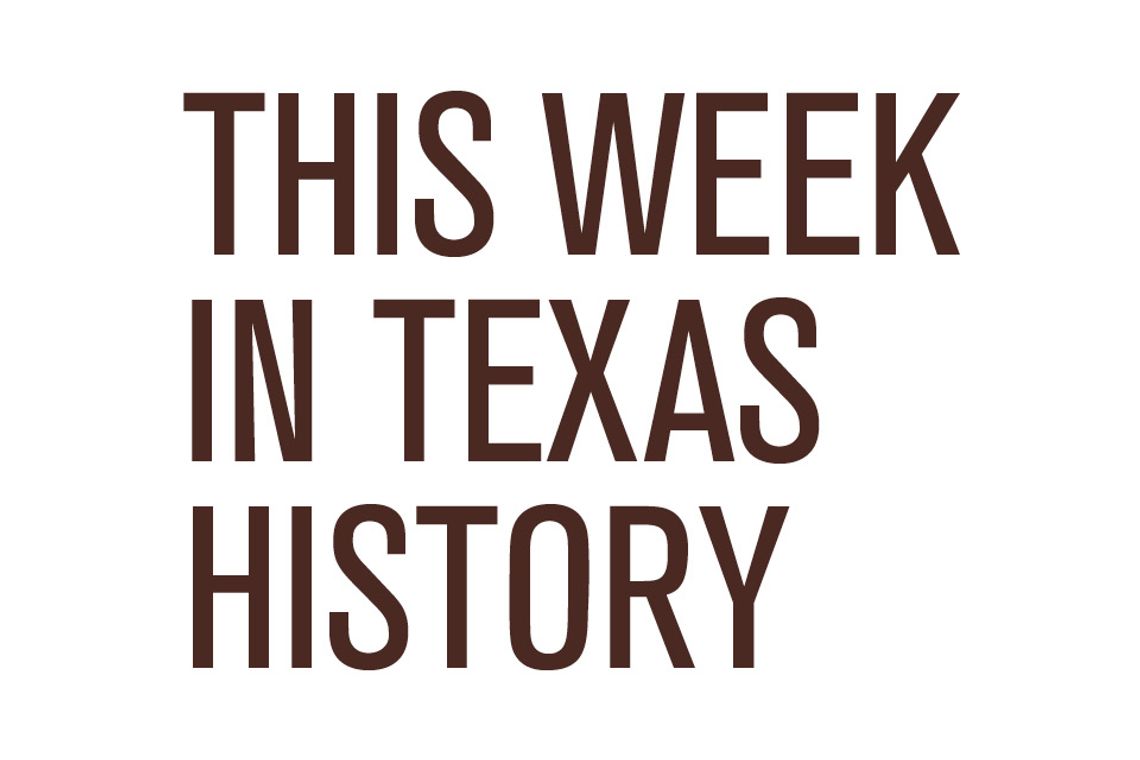In the eyes of Texas and the whole South, the Hero of San Jacinto failed a loyalty test on Feb. 28, 1854 by voting against passage of the Kansas-Nebraska Bill.
Negotiations with the Plains tribes, which concluded in the summer of 1853, opened 13 million acres north and south of the Kansas River to immediate settlement. When Congress convened in December, legislation was introduced for organizing the vast new region.
By the time the bill reached the U.S. Senate, amendments had been added dividing the domain into the Kansas and Nebraska territories and, more importantly, leaving the question of slavery up to the future inhabitants. The second refinement effectively repealed the Missouri Compromise, which for more than three decades had prevented the westward expansion of Dixie’s “peculiar institution.”
The historic debate started in the Senate on Jan. 30, 1854. Sam Houston came out early against the proposal provoking a spiteful outburst from the Richmond Enquirer. “Nothing can justify this treachery nor can anything save this traitor from the deep damnation which such treason may merit.”
Would the living legend from the Lone Star State really break ranks with the solid South? The whole country held its breath in anxious anticipation.
The star attraction took the Senate floor on Feb. 14 and delivered a marathon two-day address. Ever the outspoken champion of Indian rights, he opened with a lengthy recitation of the promises to the original Americans broken by the U.S. government. He asked what would become of the 40,000 Indians in the region only to answer that any appeal he might make on their behalf was bound to fall on deaf ears.
Resuming his remarks the next morning, Houston argued the act would do the South more harm than good. “The vast northwestern portion of our continent, unadapted to slave labor, will not be filled up by southern men with slaves,” he reasoned. “Northern people will increase that preponderance until the North is connected with California.”
Senator Sam closed with his heartfelt concern for future generations. “Our children have two alternatives presented. They are either to live in after times in the enjoyment of peace, of harmony, and prosperity, or the alternative remains for them of anarchy, discord and civil broil.”
Thirty minutes before midnight on Feb. 27, Sen. Stephen A. Douglas of Illinois called for the long-awaited vote. Houston interrupted with a motion to adjourn in a desperate parliamentary attempt to delay the decision but was shouted down by his impatient peers.
The Texan did, however, have the last word with an impassioned three-hour plea for preservation of the status quo. As the sun rose over the capitol, he roared, “Maintain the Missouri Compromise! Stir not up agitation! Give us peace!”
But it was far too late to change any minds. The Kansas-Nebraska Bill passed 37 to 14 with Houston registering one of the two nays from a southern state. Although the margin was narrower in the House of Representatives, the watershed measure was never in danger of defeat.
Houston went home to virtually universal condemnation. The ferocity of the criticism from friends as well as foes shocked and saddened the old warhorse, who was genuinely mystified by the backlash. After all, he had voted in 1848 to ban slavery from the Oregon Territory and two years later to admit California as a free state and to abolish the slave trade in the District of Columbia without incurring the wrath of his constituents.
Typical of the press reaction was this tirade in the Corsicana Prairie Blade: “Will Texas endorse this course and tamely submit not only to be misrepresented, but have her interest assailed by Houston in conjunction with his abolition allies? Is there not enough of the spirit of ’76 and ’36 in Texans to defend their own interest from the attacks of their own Senator?”
Houston confided to his personal pastor that the Kansas-Nebraska vote “was the most unpopular I ever gave.” But he was quick to add with characteristic conviction that “it was the wisest and most patriotic.”
Instead of blowing over, the political storm intensified. Twenty-two county conventions passed resolutions in the fall of 1855 taking Houston to task for his unforgivable heresy. Hays County Democrats declared that his unique contribution to Texas independence and presidential service to the Republic did not balance his recent betrayal. Even his neighbors in Huntsville called for his resignation.
On Nov. 11, 1855, the Texas legislature formally censured Sam by a lynch-mob vote of 77-3. Since lawmakers instead of the people would pick U.S. Senators for 60 more years, the reprimand served notice that Houston’s second term, due to expire in 1859, would be his last.
Bartee’s four books “Texas Depression-Era Desperadoes,” “Murder Most Texan,” “Texas Boomtowns: A History of Blood and Oil” and “Unforgettable Texans” available at barteehaile.com or by mail at P.O. Box 130011, Spring, TX 77393.










